Top 11 Dutch Culture, Customs and Etiquette
Should you remove your shoes when visiting friends? Should you greet those on elevators with a smile? When thinking about the dos and don'ts in your own ... read more...nation, these questions might not seem like the most obvious ones, but things that you might not even consider at home can have a major impact abroad. Here is a list of Dutch Culture, Customs and Etiquette.
-
The Dutch are known for being direct, pragmatic, and accepting. The Netherlands is a liberal nation with a progressive viewpoint. A significant subset of Protestantism that stretches back to the 16th century, Calvinism, appears to be the source of many Dutch attitudes, values, and beliefs.
The Netherlands as it is today is one of the most secular nations in Western Europe, despite the possibility that religious teachings helped to create the country's morality and way of life. In reality, a 2020 study by Statistics Netherlands found that more than half of Dutch citizens identify as atheist (Centraal Bureau voor de Statistiek – CBS). The percentage of religious people is 20% Roman Catholic, about 15% Protestant, and 5% Muslim.
The Dutch constitution prohibits discrimination and upholds the right to freedom of assembly, speech, and religion. Furthermore, it protects the right to privacy. Discrimination does exist in the Netherlands, despite the fact that most individuals can live in freedom regardless of their religious convictions. Official statistics indicate that 42% of police reports of prejudice in 2021 were related to racial and national origin. According to Discriminatie.nl, a large portion of this discrimination favors individuals of race. Prejudice is particularly common in the housing and employment sectors.
The official language of the Netherlands is Dutch, which is spoken by almost everyone there. West Frisian (Frysk) is also recognized as an official minority language in the northern province of Friesland. The Dutch are the most skilled non-native English speakers in the world, despite the fact that English is not one of their official languages. Over 90% of Dutch citizens speak English, according to Education First's 2021 English Proficiency Index.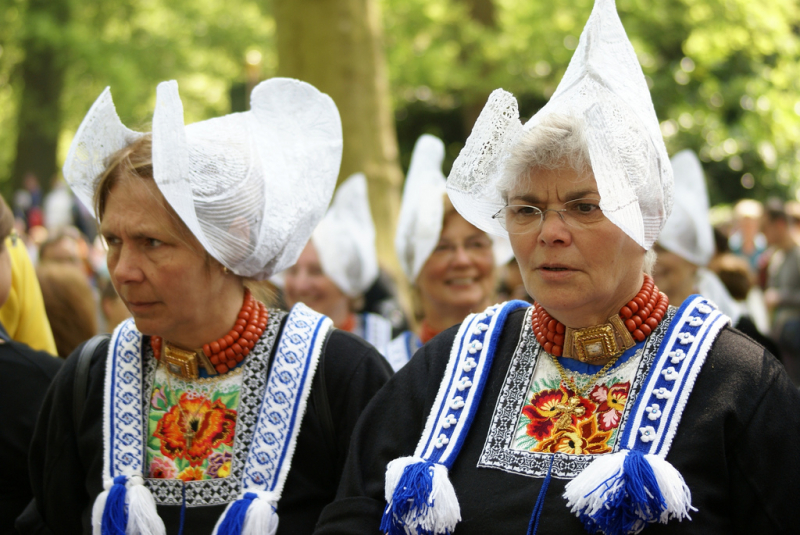
https://travellandculture.blogspot.com/ 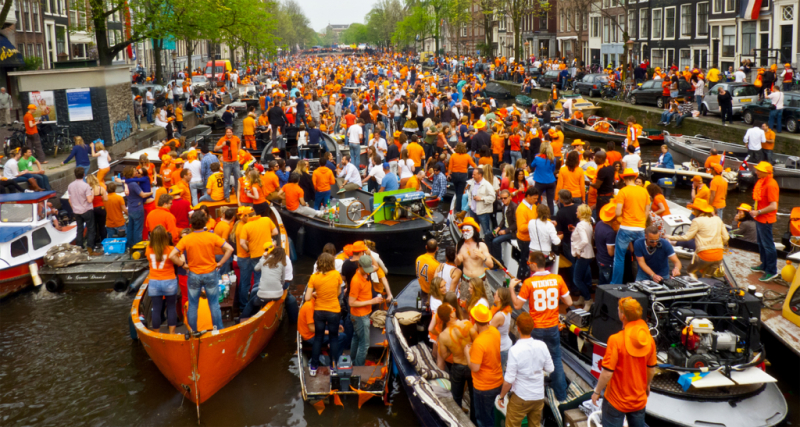
https://www.leiderenglish.com/ -
In the Netherlands, it's customary to extend a greeting while entering particular settings. For instance, it's common to say "hallo" (hello) or "goededag" to people when you enter a waiting room at a doctor's office (good day). You can bid folks "fijne dag" (have a good day) or "dag" as you depart (goodbye).
It's customary to shake hands with everyone in attendance as you enter and leave a business meeting or other formal event. The Dutch customarily kiss each other three times on alternate cheeks while greeting each other in private with friends or family. It's polite to shake hands with everyone in attendance when you meet them for the first time and introduce yourself.
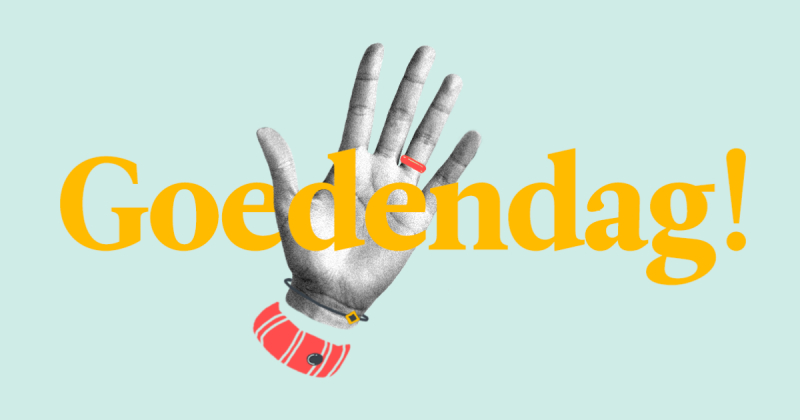
https://www.babbel.com/ 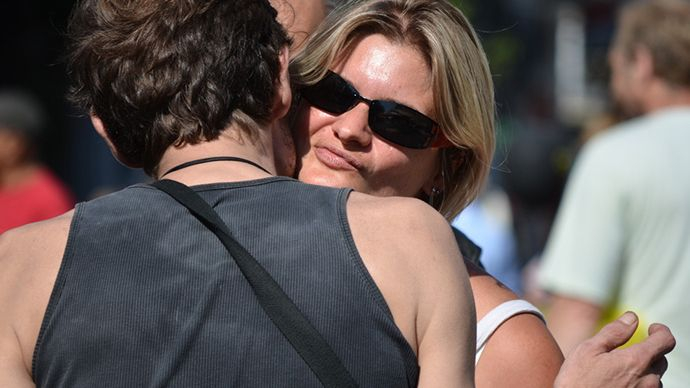
https://www.pinterest.com -
The Dutch can seem reserved and private despite being quite clear and communicative. They consequently rarely start conversations with strangers. It's a good idea to be aware of several subjects that are deemed unfriendly when conversing with Dutch people.
The Dutch often steer clear of topics that might classify people into any type of hierarchy. For instance, you shouldn't broach the subject of money or personal riches with strangers. Conversely, Dutch people are far more open when discussing subjects like sex that are frowned upon in other countries.
Making eye contact while speaking to someone is expected in Dutch social etiquette, as it is in most of the rest of the world. Dutch people don't frequently use body language as a primary means of communication. To avoid offending others, it's crucial to be mindful of specific hand movements. For instance, tapping the middle of your forehead or temple conveys that the subject of your speech is illiterate or insane. To point your finger directly at someone is equally impolite.
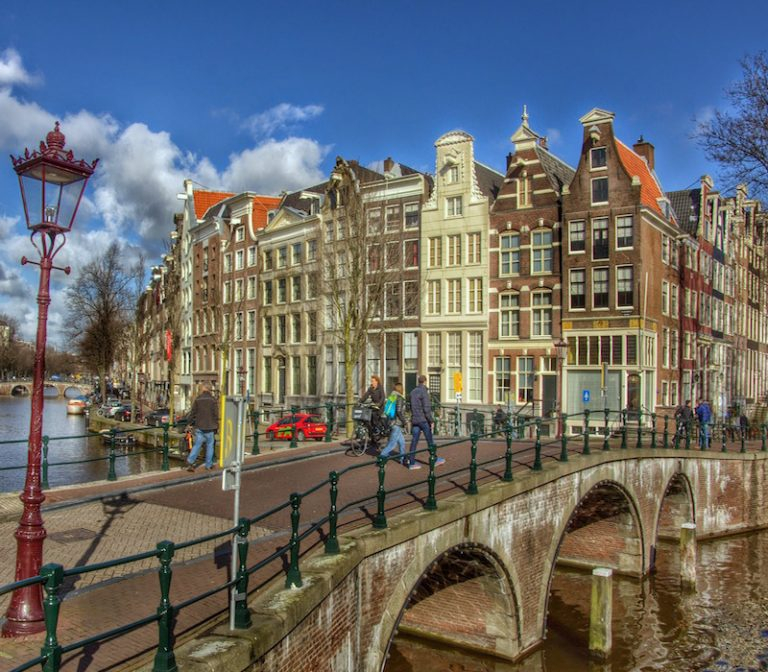
http://blog.goinglobal.com 
https://www.expatica.com/ -
The Dutch highly value appearances . They follow rules, practice conservatism, and pay close attention to details. They pride themselves on being sensible, diligent, frugal, and well-organized. They value cleanliness and orderliness highly. The Dutch are also extremely private individuals. They don't advertise themselves and don't regard the success trappings that other western nations highly value. They disapprove of extravagant demonstrations because they go against their egalitarian ideals. They don't make a big deal out of their successes or material goods.
In the Netherlands, people choose neat attire that strikes a compromise between style and comfort. The clothing style is often relatively conservative and laid back. Compared to some other European nations, the Dutch enjoy a more relaxed clothing code. This is unquestionably true at work, many social gatherings, and parties.
Although many people arrive at work wearing jeans and shoes, dressing can differ greatly based on your profession and the dress code of your employer. More persons will be seen wearing formal apparel, such as suits and dress shirts, in the financial or legal sectors.
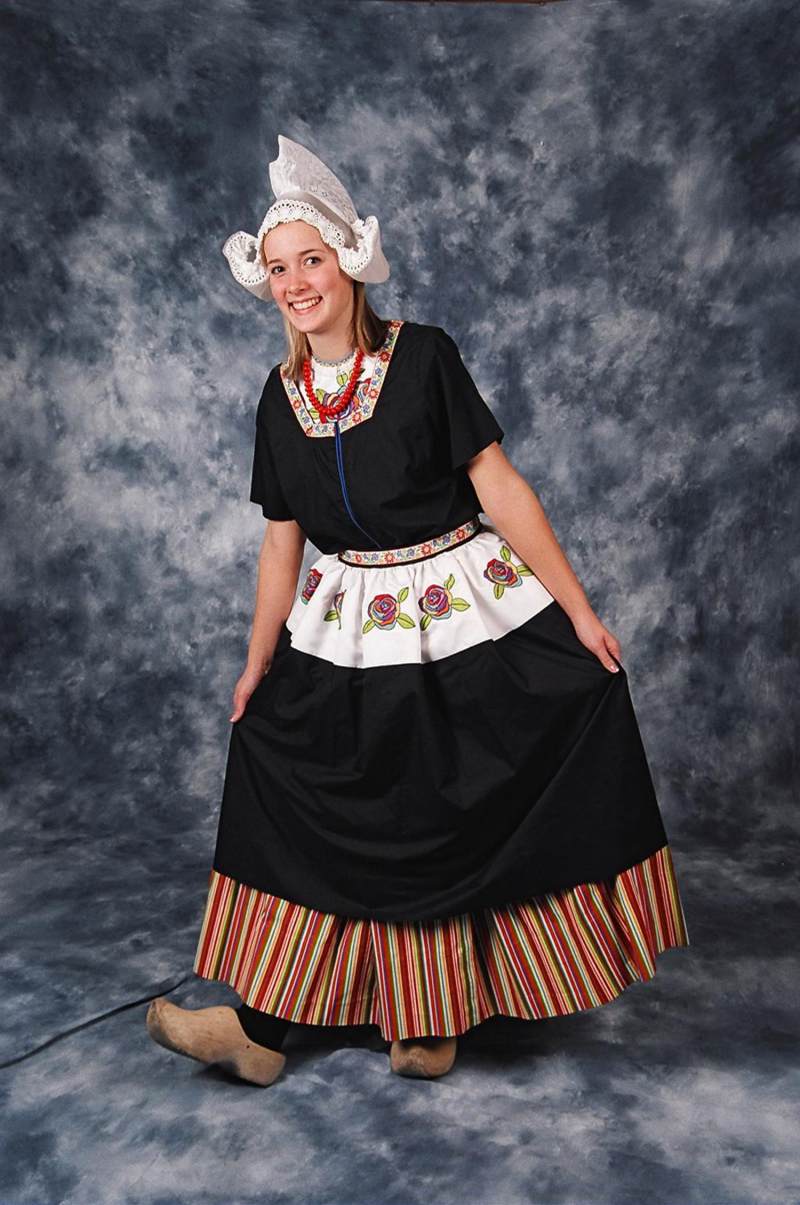
https://www.pinterest.es/ 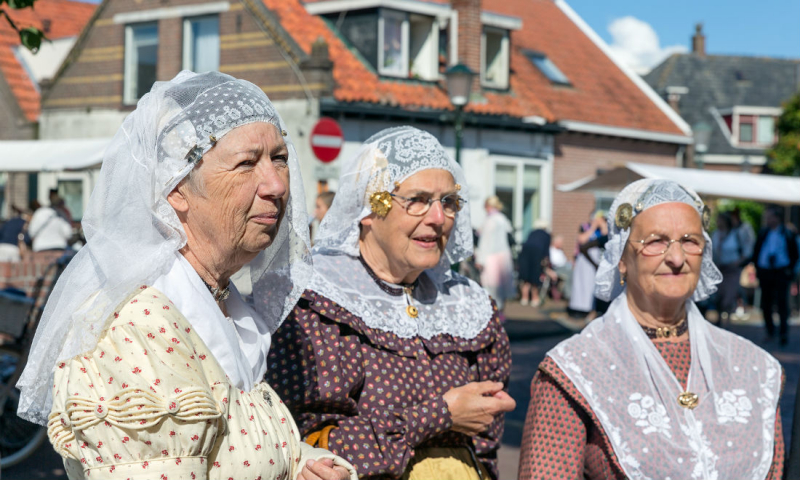
https://www.iamexpat.nl/ -
You should adhere to fundamental social conventions if you are invited to a dinner party in the Netherlands. It's polite to wait until the host gives the all-clear before starting to eat. Dutch people make eye contact with each person they are toasting and say "proost" while doing so.
The standard phrase used when it's time to eat is "Eet smakelijk," which translates to "Enjoy your meal." Put the knife and fork next to one another on your plate once you've finished your meal. Raise your hand, make an effort to make eye contact, and say "meneer" or "ober" for a waiter or "mevrouw" for a waitress if you need to summon them in a restaurant.
Many Dutch couples concur that it's polite to split the bill equally when paying for a meal. People typically pay for their purchases in groups. Using bill-splitting applications like Tikkie is probably something your dinner companions will recommend. Frequently, one individual will pay the entire bill and text the others to request payment.
Typically, tips are not included in the bill, and they are not expected. Nevertheless, it is customary to provide a 10% gratuity when paying for a dinner out, especially if you experienced excellent service. When purchasing coffee or other beverages, some people also round up the price.
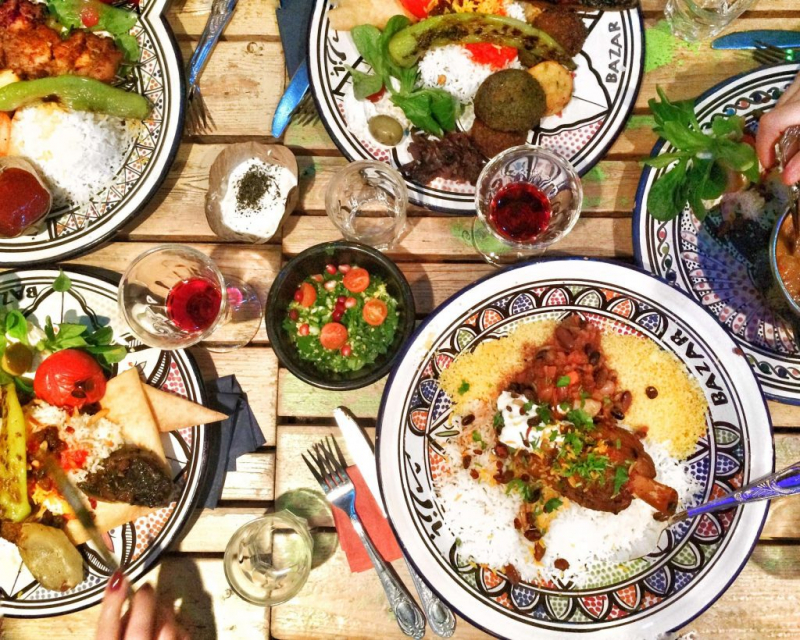
https://planeaconlena.com/ 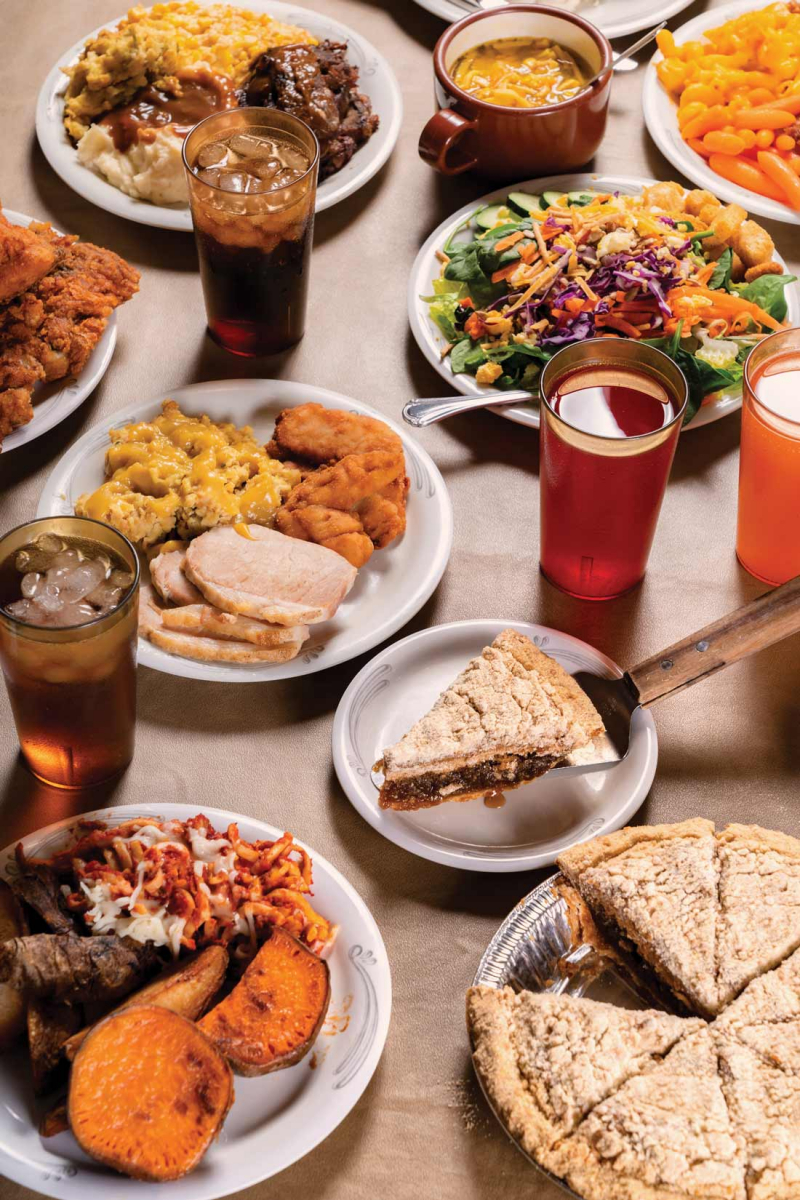
https://dininginpa.com/ -
Due to the tendency of Dutch people to stay to themselves, some expats find it challenging to form close friendships or ties with locals. The Dutch typically maintain a small, close-knit group of friends, many of whom they have known since childhood. As a result, some Dutch people don't think they need to try to widen their social circle.
However, you'll frequently find the Dutch to be friendly if you're prepared to take the initiative to mingle with them. This is particularly true if your Dutch is of a high caliber. By joining clubs and finding mutual interests, you can meet Dutch individuals. It can be a good idea to join a club for sports, yoga, cooking, or any other activity you like because Dutch people want to stay active.
Getting used to a new culture and its practices can take some time. Follow these simple advice on Dutch culture and social manners to make your life easier: Be on time for appointments, and let people know if you're going to be a little late. Avoid unexpectedly visiting someone's home. Avoid making arrogant remarks that suggest superiority. Avoid chit-chat at official and business meetings. Never refer to the Netherlands as "Holland" (Holland is a region in the Netherlands). Even if the majority of people in the Netherlands are proficient in English, try to speak some Dutch.
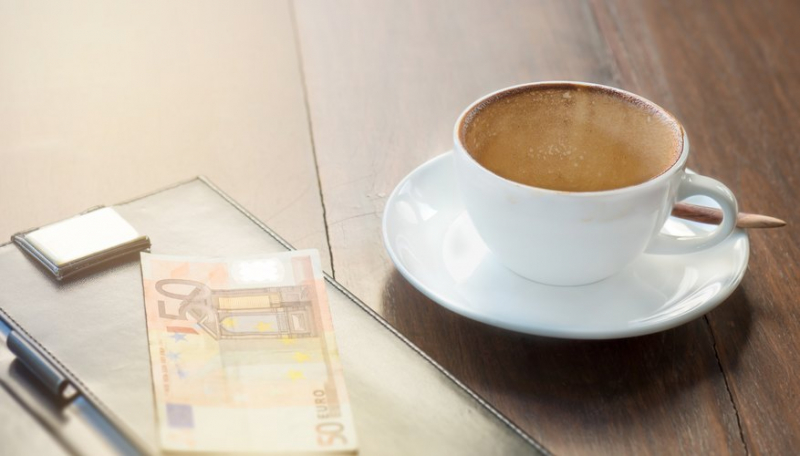
https://getaway.10best.com/ 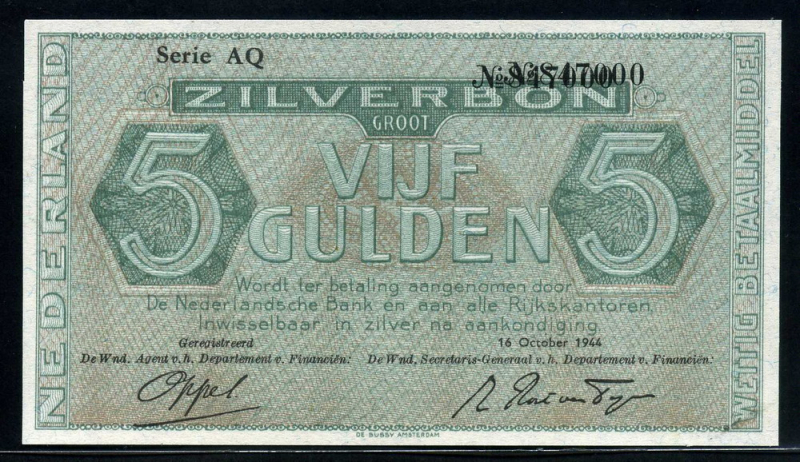
https://www.worldbanknotescoins.com/ -
When it comes to dating and relationships, the Dutch tend to be extremely pragmatic and no-nonsense. All genders value directness and honesty, therefore trying to be difficult to get will probably not work in the Netherlands.
The Netherlands adopts a more permissive attitude toward dating etiquette than some other countries, such as those that insist on men initiating contact or refraining from kissing on the first date. Dutch folks, on the other hand, like to let events unfold spontaneously based on what seems appropriate.
On the first date, physical contact is typically kept to a minimum. Couples frequently become more overtly amorous with one another as time goes on. In the Netherlands, marriage is becoming less widespread. In 2021, there were 56,419 weddings, down from 73,400 in 2010. More couples today opt to formally recognize their love through a civil partnership instead of getting married.
In 2001, the Netherlands became the first nation in the world to formally sanction same-sex unions. With 1,192 same-sex marriages reported in 2021, the same-sex marriage rate has stayed largely stable over the previous ten years.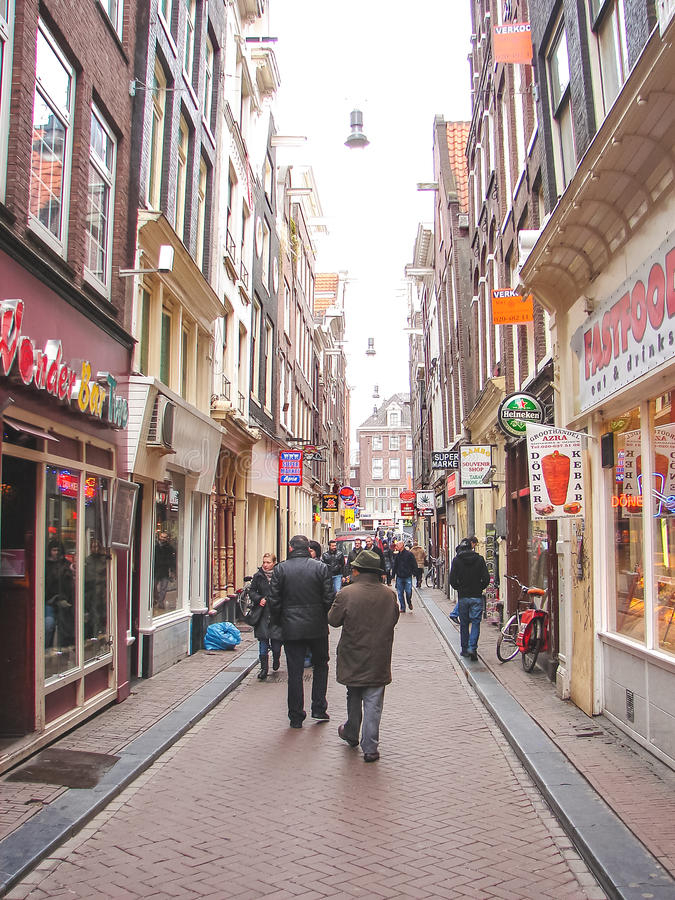
https://www.dreamstime.com/ 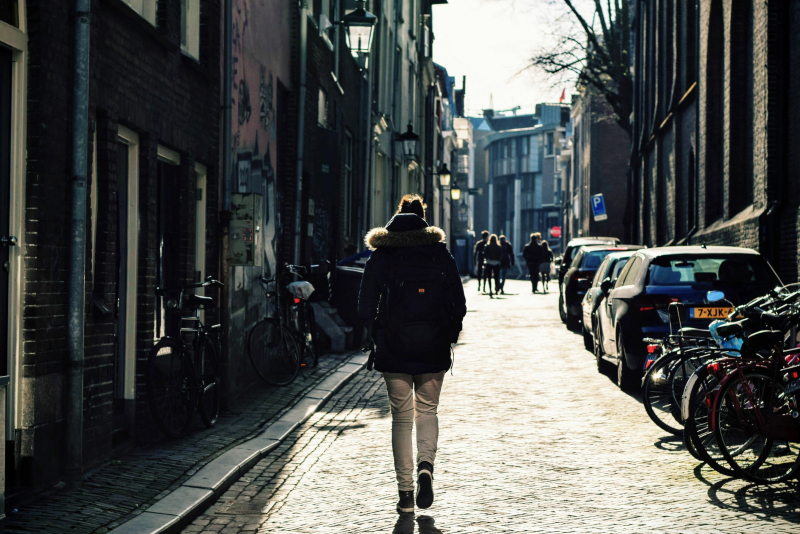
https://www.goodfreephotos.com/ -
The Dutch business culture is generally not rigidly hierarchical and is rather flexible. The flat organizational structure found in many Dutch businesses and organizations reflects the openness and egalitarianism that characterize Dutch business etiquette.
The majority of decisions are decided by agreement, and all group members are encouraged to provide their opinions. Despite the fact that Dutch people often keep their personal and professional lives separate, some businesses host social events for their staff. These might include borrels, as well as food and beverages for after work. Borrels typically last till before dinner and are quite informal.
Nevertheless, the informal and direct corporate culture in the Netherlands is well-known. Every level of the organization asks your boss's opinion and receives his feedback using the pronoun "you." Yes, occasionally even your boss gets input from the workforce. Flat organizational structures are common in Dutch businesses. Everyone offers their thoughts, which is very welcomed.
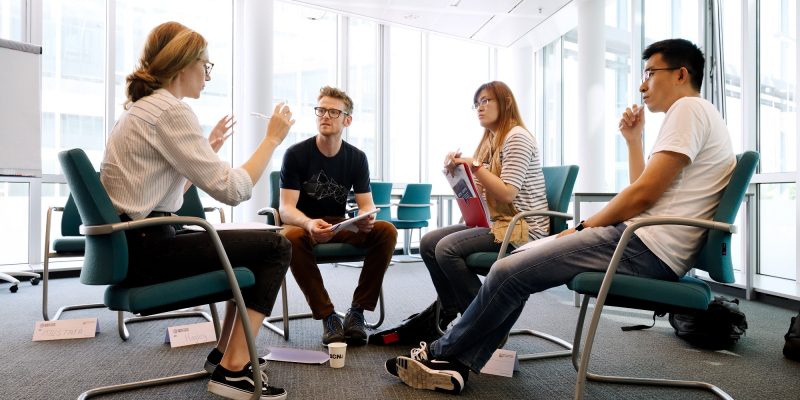
https://www.hightechinstitute.nl 
https://www.iamexpat.nl -
In the Netherlands, religious holidays like Christmas and Easter are the main focus of festivities and customs. Sinterklaas, which falls on December 5, is one of the most well-liked celebrations in the Netherlands. Despite being primarily a children's festival, Sinterklaas is also observed by adults, who exchange gifts and write amusing poems about the recipients of their gifts.
Around this time, there will also be discussions about Zwarte Piet, a Sinterklaas companion who is portrayed by blackface Dutch actors. This custom has recently started to lose popularity since it offends persons of color and Dutch people who want to "maintain the peace." In fact, Zwarte Piet is frequently the focus of tense protests and counterprotests.
One of the most important national holidays in the Netherlands is Koningsdag, or King's Day. On April 27th each year, people dress entirely in orange, take part in raucous street celebrations, music performances, and flea markets.
The Netherlands has various distinctive traditions and rituals related to birthdays. At birthday celebrations, it's normal to extend "gefeliciteerd" (congratulations) to all guests in addition to the birthday person. Circle parties, when participants gather in a circle and converse while having tea and cake, are another well-known Dutch tradition.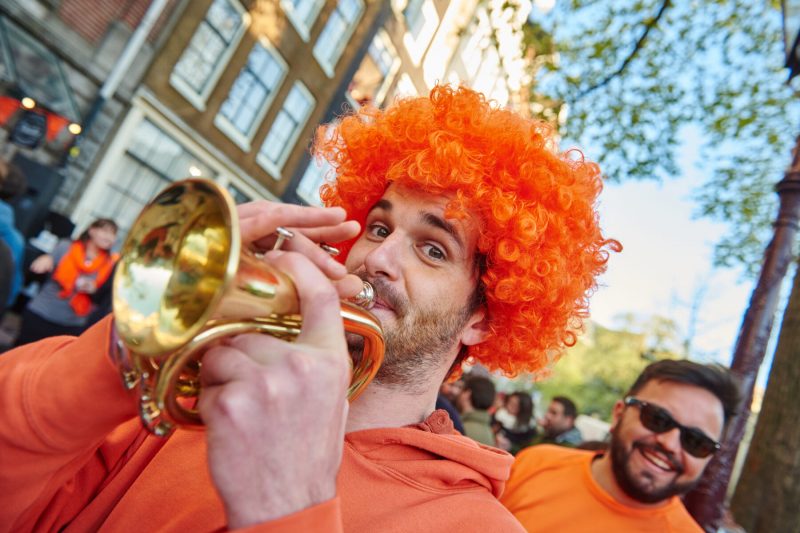
https://www.expatica.com 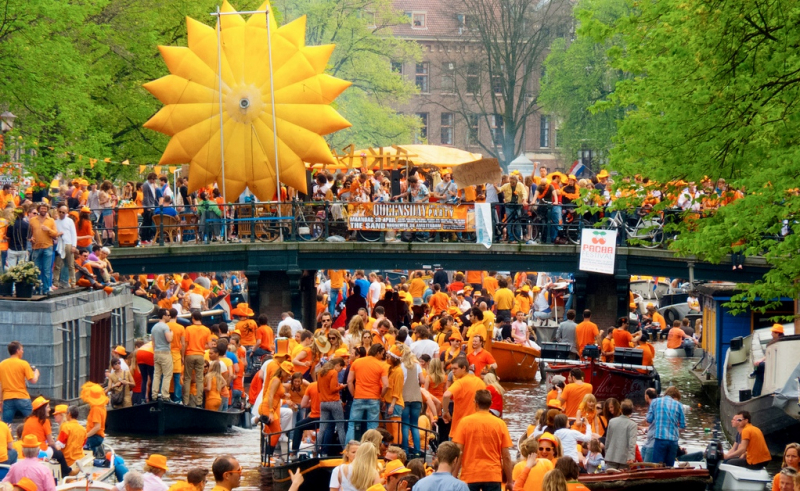
https://www.expatica.com/nl/ -
Bringing a modest present for the host or hostess is considered polite when visiting a Dutch individual at their home. It's preferable to refrain from giving extravagant or extremely expensive gifts because doing so could embarrass the host. Instead, if they drink, bring something straightforward like flowers, chocolates, or a bottle of wine. The majority of Dutch people instantly open gifts after receiving them, as opposed to waiting until they are alone to do so.
The market for gift cards is increasing in the Netherlands as well. For birthdays, holidays, and other special events, many Dutch people purchase gift cards (cadeaukaartjes or cadeaubonnen) from well-known e-retailers and give them to friends, family, and coworkers.
Giving presents is not a typical part of Dutch business culture. It's recommended to give a business partner a small gift if you'd want to exchange gifts. It's also recommended to refrain from giving presents until after you've developed a relationship and concluded any commercial talks.
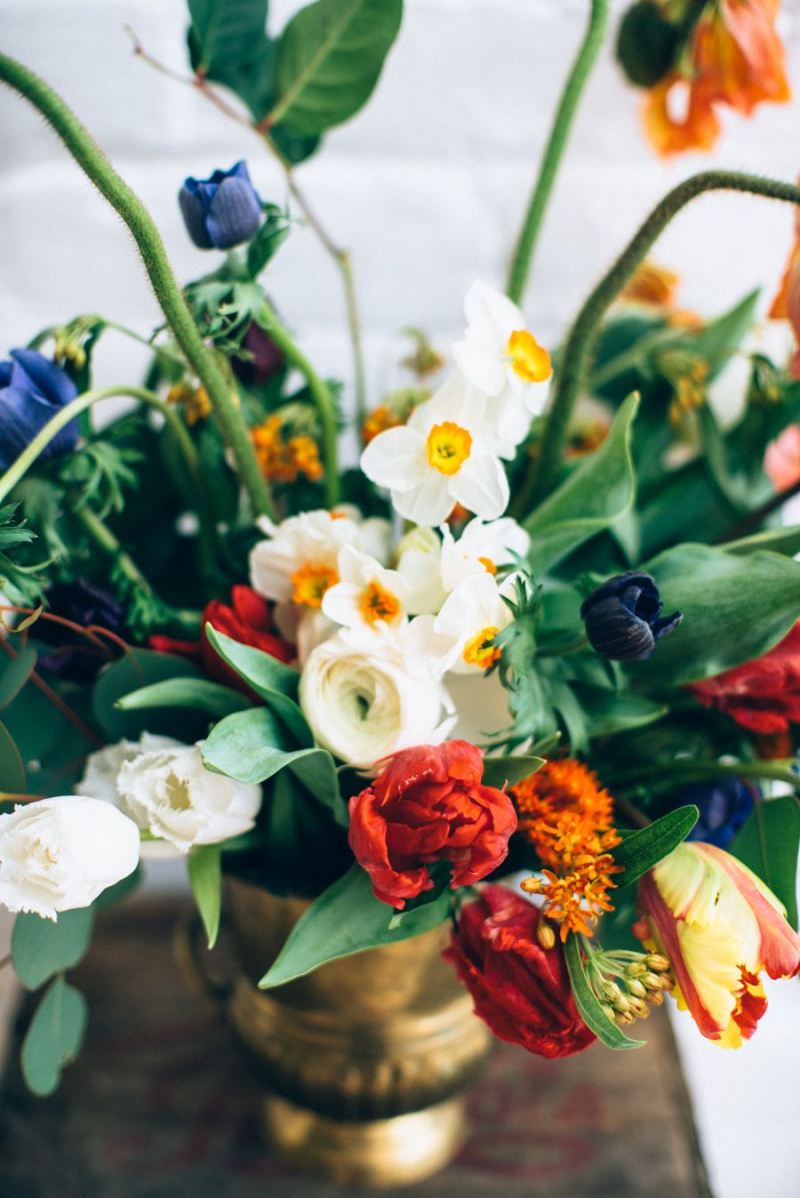
https://www.pinterest.com/ 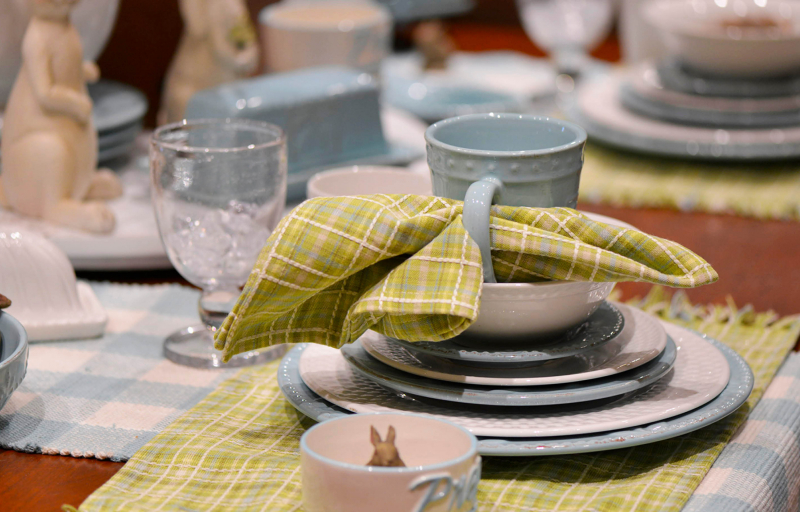
https://christiantreasureseekers.com -
The Randstad and beyond the Randstad are the two main geographic and cultural divisions of the Netherlands. The largest cities of the nation, including Amsterdam, Rotterdam, The Hague (Den Haag), and Utrecht, are all included in the Randstad. As a result, the inhabitants tend to have more liberal attitudes, and the culture is clearly urban. On the other hand, outsiders are typically perceived as being more traditional.
You could discover that religion has a bigger impact on daily life outside of the Randstad. While the majority of the Netherlands is Protestant, the historic Catholic districts are found in the south and east. For instance, if you reside in Limburg, you might celebrate Carnaval in February or March. On the other hand, businesses may be shuttered and Sunday activity discouraged in rural Protestant communities.
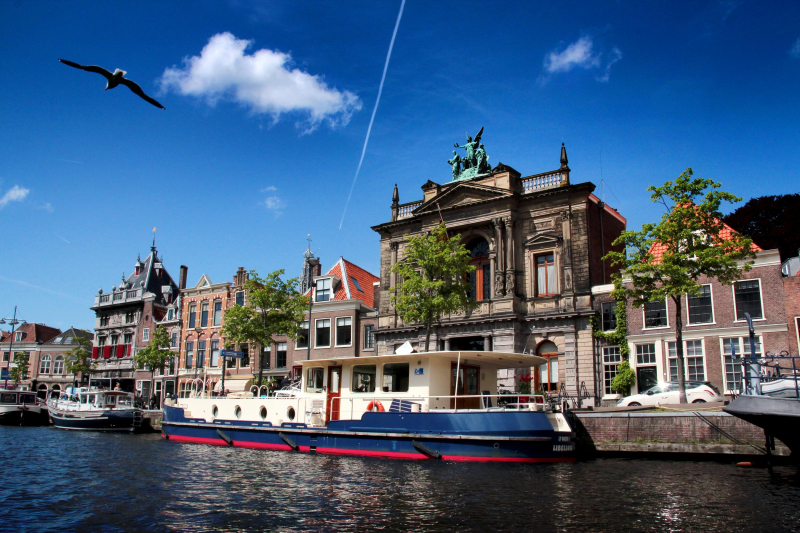
https://www.fodors.com/ 
https://www.nordicexperience.com
































